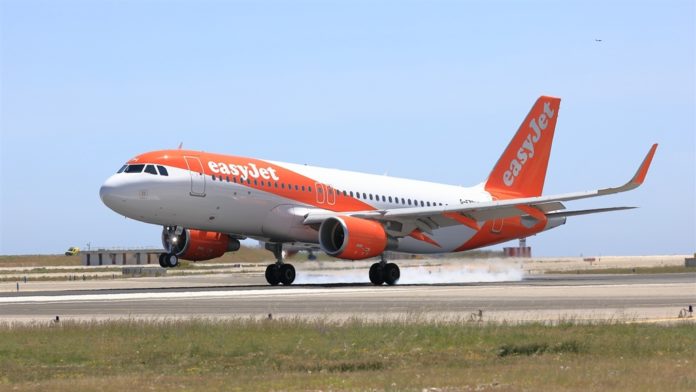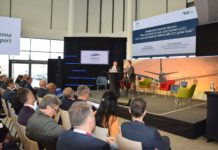easyJet, Europe’s leading airline, and Airbus have signed a Memorandum of Understanding (MoU) related to a joint research project on hybrid and electric aircraft.
The MoU is an important step towards furthering the industry’s understanding of the operational and infrastructure opportunities and challenges of plug-in hybrid and full electric aircraft.
easyJet and Airbus will cooperate on three distinct work packages set to define the impacts and the requirements necessary for the large-scale introduction of next generation sustainable aircraft on infrastructure and every-day commercial aircraft operations.
Commenting on the partnership, Johan Lundgren, CEO of easyJet, said:
“easyJet has a long tradition of efficient flying and a long-term partnership with Airbus. Our priority is to continue to work on reducing our carbon footprint in the short-term while we work to support the development of new technology, including hybrid-electric planes which promise to radically reduce the carbon footprint of aviation.
“I am therefore delighted to be working with Airbus on a new hybrid and electric plane research partnership. The project will aim to identify the detailed technical challenges and requirements for hybrid and electric planes when deployed for short haul flying around Europe so that we can help shape the technology and airline networks of the future. We hope this will be an important step towards making hybrid electric planes a reality.”
“Environmental performance is a top-level priority for Airbus, and we are proud to have easyJet on board as a partner for our hybrid and electric aircraft research,” said Guillaume Faury, Airbus Chief Executive Officer. “Airbus is committed to meeting aviation’s decarbonisation objectives. By focusing our research efforts on hybrid and electric propulsion technologies, we are doing just that – playing a leading role, alongside our customers, in the development of clean and safe technologies for the sustainable future of our industry.”
This collaboration supports the work already underway with easyJet partner and US start-up company, Wright Electric, which will continue alongside the Airbus collaboration.
Wright Electric has set itself the challenge of building an all-electric commercial passenger jet capable of flying passengers across easyJet’s UK and European network within a decade. It has commenced work on an electric engine that will power a nine seater aircraft. Wright Electric partner Axter Aerospace already has a two seater aircraft flying, and the larger aircraft is expected to start flying in the coming weeks. The prototype propulsion system for the nine-seat aircraft is four times more powerful than the system installed on the two-seat aircraft.
In addition to these initiatives, easyJet remains focused on operating its fleet as efficiently as possible using modern fuel efficient engines which are quieter and burn less fuel as well as carrying as many passengers as possible in the aircraft.
Pioneering has always been a core element of the airline’s strategy and since 2000 easyJet has reduced its carbon emissions per passenger per kilometre by over one-third (33.67%).
easyJet, has also announced today that it will become the world’s first major airline to operate net-zero carbon flights across its whole network. The airline will achieve this goal by offsetting the carbon emissions from the fuel used for all of its flights, starting today.
Quelle: Easyjet





